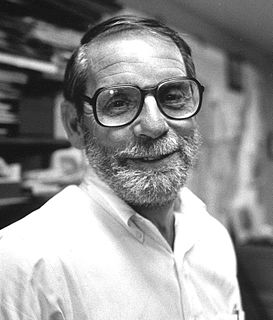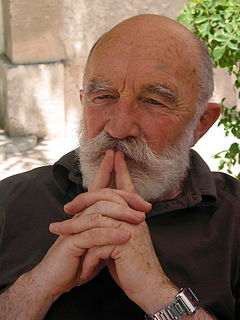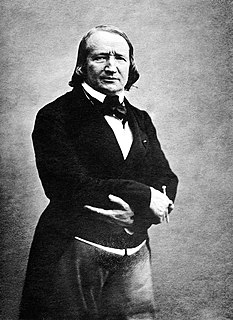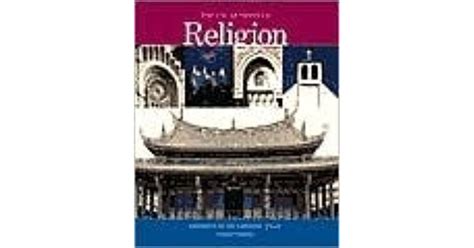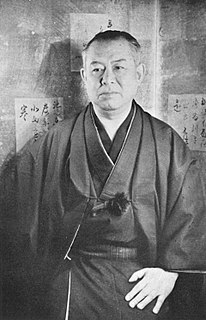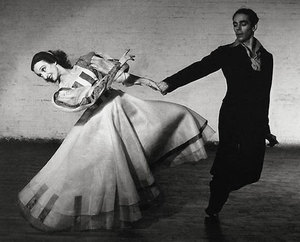Top 1200 Bowel Movements Quotes & Sayings - Page 20
Explore popular Bowel Movements quotes.
Last updated on November 15, 2024.
It is well-known that those who have charge of young infants, that it is difficult to feel sure when certain movements about their mouths are really expressive; that is when they really smile. Hence I carefully watched my own infants. One of them at the age of forty-five days, and being in a happy frame of mind, smiled... I observed the same thing on the following day: but on the third day the child was not quite well and there was no trace of a smile, and this renders it probable that the previous smiles were real.
There was a deep silence, only scraped on its surfaces by the faint quiver of empty seed-plumes, and broken grass-blades trembling in small air-movements they could not feel. 'Not a bird!' said Sam mournfully. 'No, no birds,' said Gollum. 'Nice birds!' He licked his teeth. 'No birds here. There are snakeses, wormses, things in the pools. Lots of things, lots of nasty things. No birds,' he ended sadly. Sam looked at him with distaste.
I think that in the past, in the '50s and '60s, after the existentialists and beatniks and hippie movements, the big deal was, Don't sell out. We live in a society that by virtue of the speed we communicate and sell, everything sells. The danger is buying in; that your concern becomes success, rather than fulfillment. They're two different beasts, and my feeling is that you should seek fulfillment. You should not measure your worth in how much you have or how popular you are, but how happy you are with what you do.
Tao is obscured when men understand only one pair of opposites, or concentrate only on a partial aspect of being. Then clear expression also becomes muddled by mere wordplay, affirming this one aspect and denying all the rest. The pivot of Tao passes through the center where all affirmations and denials converge. He who grasps the pivot is at the still-point from which all movements and oppositions can be seen in their right relationship... Abandoning all thought of imposing a limit or taking sides, he rests in direct intuition.
Some people's joints articulate in a manner that allows them to benefit greatly from squats; others may not benefit at all. If you're not too tall and have short limbs, it may be the best exercise for you, but if you're tall with long legs, it might be both ineffective and dangerous.I was stubbornly faithful to squats for years until I finally realized they were not well-suited for my body structure. After I switched tomore muscle-intensive movements, my gains in leg size were astounding.
Most of us are conditioned for many years to have a political viewpoint - Republican or Democratic, liberal, conservative, or moderate. The fact of the matter is that most of the problems that we now face are technical problems, are administrative problems. They are very sophisticated judgments, which do not lend themselves to the great sort of passionate movements which have stirred this country so often in the past. - They deal with questions which are now beyond the comprehension of most men.
Theater is such a different ballgame than film. And that's really why I stayed in film, because I really love the reality of connecting with your own feelings, and really putting that across in a realistic way. In film, the smallest muscular movements in your face, that are produced just by sheer feelings, you're not controlling them in anyway, can be seen by people in the audience because your face is sometimes, frighteningly, 40 feet wide!
A powerful athlete is not a strong athlete, but one who can exert his strength quickly. Since power equals force times speed, if the athlete learns to make faster movements he increases his power, even though the contractile pulling strength of his muscles remains unchanged. Thus, a smaller man who can swing faster may hit as hard or as far as the heavier man who swings slowly.
I came to set fire to the earth. And I am watchful that the fire grow. May the fire of love grow in our hearts. May the fire of transformation glow in our movements. May the fire of purification burn away our sins. May the fire of justice guide our steps. May the fire of wisdom illuminate our paths. May the fire that spreads over the Earth never be extinguished.
One might compare the relation of the ego to the id with that between a rider and his horse. The horse provides the locomotor energy, and the rider has the prerogative of determining the goal and of guiding the movements of his powerful mount towards it. But all too often in the relations between the ego and the id we find a picture of the less ideal situation in which the rider is obliged to guide his horse in the direction in which it itself wants to go.
In the stillness of the night, the Goddess whispers. In the brightness of the day, dear God roars. Life pulses, mind imagines, emotions wave, thoughts wander. What are all these but the endless movements of One Taste, forever at play with its own gestures, whispering quietly to all who would listen: is this not yourself? When the thunder roars, do you not hear your Self? When the lightning cracks, do you not see your Self? When clouds float quietly across the sky, is this not your own limitless Being, waving back at you?
We need merely understand that the evolutionary process is neither random nor determined but creative. It follows the general pattern of all creativity. While there is no way of fully understanding the origin moment of the universe we can appreciate the direction of evolution in its larger arc of development as moving from lesser to great complexity in structure and from lesser to greater modes of consciousness. We can also understand the governing principles of evolution in terms of its three movements toward differentiation, inner spontaneity, and comprehensive bonding.
There comes a terrible moment to many souls when the great movements of the world, the larger destinies of mankind, which have lain aloof in newspapers and other neglected reading, enter like an earthquake into their own lives--when the slow urgency of growing generations turns into the tread of an invading army or the dire clash of civil war, and grey fathers know nothing to seek for but the corpses of their blooming sons, and girls forget all vanity to make lint and bandages which may serve for the shattered limbs of their betrothed husbands.
It's very good for you, riding. Every model is like, "I do yoga." I find horses have the same effect, in that you have to put your ego aside and concentrate on making the horse do the things you want it to do, and move in the way you want it to move. So you have to use your body to help this horse do incredibly difficult movements that don't come naturally to it. And if something goes wrong, it's not the horse's fault; it's always your fault. So you have to be quite levelheaded. And then the whole nature aspect of it is very calming.
To him she seemed so beautiful, so seductive, so different from ordinary people, that he could not understand why no one was as disturbed as he by the clicking of her heels on the paving stones, why no one else's heart was wild with the breeze stirred by the sighs of her veils, why everyone did not go mad with the movements of her braid, the flight of her hands, the gold of her laughter. He had not missed a single one of her gestures, not one of the indications of her character, but he did not dare approach her for fear of destroying the spell.
When the climbers in 1953 planted their flags on the highest mountain, they set them in snow over the skeletons of creatures that had lived in the warm clear ocean that India, moving north, blanked out. Possibly as much as twenty thousand feet below the seafloor, the skeletal remains had turned into rock. This one fact is a treatise in itself on the movements of the surface of the earth. If by some fiat I had to restrict all this writing to one sentence, this is the one I would choose: The summit of Mt. Everest is marine limestone.
In the last few decades we have seen the extraordinary rise of ecosocialist movements around the world inspired in large part by Marx's ecological critique of political economy. Marx was indeed influenced by some of the earliest attempts to develop what we now call an ecological-systems view, rooted in the concept of metabolism. Building on this perspective, Marx defined socialism as the rational regulation by the associated producers of the metabolism between society and nature in such a way as to conserve energy and to promote the satisfaction of human needs.
When listening to the sound material, we metamorphose the inside into an outside. This notion of metamorphosis is one of the principles that leads the course of the musical suite, reflecting changes (fluidsolid passages: water/ice/fire) or movements (ebb/flow/wave, inspiration/expiration) or inside-outside passages (door/individual/crowd). Thus, the perceived object is not entirely what we would have liked it to be. Our music brings us closer to some while it takes us away from others: each with their own inside.
If you look at social movements in Latin America, there are spaces where alternative politics are thought about on the ground, at the grassroots level, but they are always under threat. The problem in North Africa and the Middle East is the politics of oil. It means that the spaces for truly grassroots politics, involving those masses of people excluded from high politics, are very quickly closed down. They are not really allowed any kind of autonomy to develop, and that seems to be the real problem, which gets us back to the neo-colonial relationship.
Most new movements start this way: hundreds or thousands of individuals and groups, working in different fields and different locations, start thinking about change using a common language, without necessarily recognizing those shared values. You just start following your own vector, propelled along by people in your immediate vicinity. And then one day, you look up and realize that all those individual trajectories have turned into a wave.
High quality water is more than the dream of the conservationists, more than a political slogan; high quality water, in the right quantity at the right place at the right time, is essential to health, recreation, and economic growth. Of all our planet's activities - geological movements, the reproduction and decay of biota, and even the disruptive propensities of certain species (elephants and humans come to mind) - no force is greater than the hydrologic cycle.
We're foolish if we think we're going to end mass incarceration unless we are willing to deal with the reality that huge percentages of poor people are going to remain jobless, locked out of the mainstream economy, unless and until they have a quality education that prepares them well for the new economy. There has got to be much more collaboration between the two movements and a greater appreciation for the work of the advocates in each community. It's got to be a movement that's about education, not incarceration - about jobs, not jails.
The term "globalization," like most terms of public discourse, has two meanings: its literal meaning, and a technical sense used for doctrinal purposes. In its literal sense, "globalization" means international integration. Its strongest proponents since its origins have been the workers movements and the left , which is why unions are called "internationals", and the strongest proponents today are those who meet annually in the World Social Forum and its many regional offshoots.
If, on thinking this, I look up to see if reality can quench my thirst, I see inexpressive facades, inexpressive faces, inexpressive gestures. Stones, bodies, ideas - all dead. All movements are one great standstill. Nothing means anything to me, not because it's unfamiliar but because I don't know what it is. The world has slipped away. And in the bottom of my soul - as the only reality of this moment - there's an intense and invisible grief, a sadness like the sound of someone crying in a dark room.
Drama is based on the Mistake. I think someone is my friend when he really is my enemy, that I am free to marry a woman when in fact she is my mother, that this person is a chambermaid when it is a young nobleman in disguise, that this well-dressed young man is rich when he is really a penniless adventurer, or that if I do this such and such a result will follow when in fact it results in something very different. All good drama has two movements, first the making of the mistake, then the discovery that it was a mistake.
Certainly here in the U.S., we've had fundamentalist movements that have taken very critical and hostile attitudes toward immigration and the assimilation of immigrants into our society and culture. So these tendencies are fairly universal. The problem is what if they get out of hand and become the dominant factor in a society, which can only lead to the oppression of minorities or even to war with neighboring societies with differing cultures. That's why it seems to me it's important to try to keep these tendencies toward extremism under control.
The heaviest of burdens is simultaneously an image of life's most intense fullfillment. The heavier the burden, the closer our lives come to the earth, the more real and truthful they become. Conversely, the absolute absence of a burden causes man to be lighter than air, to soar into new heights, take leave of the earth and his earthly being, and become only half real, his movements as free as they are insignificant. What then shall we choose? Weight or lightness?
He walked on without resting. He had a terrible longing for some distraction, but he did not know what to do, what to attempt. A new overwhelming sensation was gaining more and more mastery over him every moment; this was an immeasurable, almost physical, repulsion for everything surrounding him, an obstinate, malignant feeling of hatred. All who met him were loathsome to him - he loathed their faces, their movements, their gestures. If anyone had addressed him, he felt that he might have spat at him or bitten him... .
The Federal Building's large Ceremonial Courtroom, reserved for show trials, is veneered in executive teak. Bench, counsel tables, jury boxes, entrances, and exits -- all are as formally arranged as an Elizabethan stage. Only the drama is shapeless, at least to those of us who have never seen a trial before. We see only random movements, sequences, comings and goings, no form or agenda apparent. To us the action is less like watching a play than watching an aquarium.
It is worthwhile adding that the power of the poem to teach not only sensibilities and the subtle movements of the spirit but knowledge, real lasting felt knowledge, is going mostly unnoticed among our scholars. The body of knowledge locked into and releasable from poetry can replace practically any university in the Republic. First things first, then: the primal importance of a poem is what it can add to the individual mind.Poetry is the voice of a poet at its birth, and the voice of a people in its ultimate fulfillment as a successful and useful work of art.
For me, it is clear that we are currently in a period of structural crisis of capitalism going back to the 1970s, but deepening in our time. Persistent economic stagnation together with neoliberal austerity has at this point seriously undermined the stability of the liberal-democratic state and thus the political command sector of the capitalist system. This has led to a dangerous resurgence of political movements in the fascist genus, representing an alternative way of managing the state of the capitalist system, opposed to liberal democracy.
Man will become immeasurably stronger, wiser, and subtler; his body will become more harmonious, his movements more rhythmic, his voice more musical. The forms of life will become dynamically dramatic. The average human type will rise to the heights of an Aristotle, a Goethe, or a Marx. And above these heights, new peaks will rise.
The Heidelberg Catechism rightly says, for all Christians who allow the Bible to absorb the world for them - who see reality through the biblical story - that the purpose of life is to glorify God - a personal being who is ultimate over us and everything else - and enjoy him forever. This should be clear to all Christians, but many Christians have been influenced to think otherwise even about the Bible because of dabbling in movements such as the New Age Movement or the Gospel of Health and Wealth or even naturalistic humanism.
We must in imagination sweep off the drifted matter that clogs the surface of the ground; we must suppose all the covering of moss and heath and wood to be torn away from the sides of the mountains, and the green mantle that lies near their feet to be lifted up; we may then see the muscular integuments, and sinews, and bones of our mother Earth, and so judge of the part played by each of them during those old convulsive movements whereby her limbs were contorted and drawn up into their present posture.
I am not against identity politics or single based issues; at the same time, we need to find ways to connect these singular modes of politics to broader political narratives about democracy so we can recognize their strengths and limitations in building broad-based social movements. In short, we need to find new ways to connect education to the struggle for democracy that is under assault in ways that were unimaginable forty years ago.
When a Pueblo Indian does not feel in the right mood, he stays away from the men's council. When an ancient Roman stumbled on the threshold as he left the house, he gave up his plans for the day. This seems to us senseless, but under primitive conditions of life such an omen inclines one at least to be cautious. When I am not in full control of myself, my bodily movements may be under a certain constraint; my attention is easily distracted; I am somewhat absent-minded. As a result I knock against something, stumble, let something fall, or forget something.
The navel region is the centre of the vital. It is from here that the movements of the vital rise upward. Above the navel and behind the chest is the centre of the play of emotions and below this takes place the play of the physical. Mul?dh?ra is the base of the physical. In between the Mul?dh?ra and the navel, there is another centre of the vital.
Maybe belief is the biggest lie. In ages past, the earliest philosophers tried to explain the stars in the sky and the world around them. One of them conceived of the notion that the universe was mounted on giant crystal spheres controlled by a giant machine, which explained the movements of the heavens. He was laughed at and told that such a machine would be so huge and noisy that everyone would hear it. He simply replied that we are born with that noise all around us, and that we are so used to hearing it that we cannot hear it at all.
I may venture to say, loosely, that in Judo there is a sort of counter for every twist, wrench, pull, push or bend. Only the Judo expert does not oppose such movements at all. No, he yields to them. But he does much more than yield to them. He aids them with a wicked sleight that causes the assailant to put out his own shoulder, to fracture his own arm, or in a desparate case, even to break his own neck or back.
We have to grasp, as Marx and Adam Smith did, that corporations are not concerned with the common good. They exploit, pollute, impoverish, repress, kill, and lie to make money. They throw poor people out of homes, let the uninsured die, wage useless wars for profit, poison and pollute the ecosystem, slash social assistance programs, gut public education, trash the global economy, plunder the U.S. Treasury and crush all popular movements that seek justice for working men and women. They worship money and power.
It's a shame for women's history to be all about men--first boys, then other boys, then men men men. It reminds me of the way our school history textbooks were all about wars and elections, one war after another, with the dull periods of peace skimmed over whenever they occurred. (Our teachers deplored this and added extra units about social history and protest movements, but that was still the message of the books.)
THE NINETEENTH CENTURY SPREAD OF CHRISTIANITY WAS DUE PRIMARILY TO A NEW BURST OF RELIGIOUS LIFE EMANATING FROM THE CHRISTIAN IMPULSE. . . . NEVER IN ANY CORRESPONDING LENGTH OF TIME HAD THE CHRISTIAN IMPULSE GIVEN RISE TO SO MANY NEW MOVEMENTS. NEVER HAD IT HAD QUITE SO GREAT AN EFFECT UPON WESTERN EUROPEAN PEOPLES. IT WAS FROM THIS ABOUNDING VIGOR THAT THERE ISSUED THE MISSIONARY ENTERPRISE WHICH DURING THE NINETEENTH CENTURY SO AUGMENTED THE NUMERICAL STRENGTH AND THE INFLUENCE OF CHRISTIANITY.
Early on a difficult climb, especially a solo climb, you’re hyper-aware of the abyss pulling at your back, constantly feeling its call, its immense hunger. To resist takes tremendous conscious effort, you don’t dare let your guard down for an instant. The void puts you on edge, makes your movements tentative and clumsy. But as the climb continues, you grow accustomed to the exposure, you get used to rubbing shoulders with doom, you come to believe in the reliability of your hands and feet and head. You learn to trust your self-control.
There are a lot of memories we imagine. We play them over and over in our minds, trying to orchestrate our movements and words to perfection. Or maybe it's just that I've lived inside of my head more than any other person in the history of the world. Maybe none of us can really predict how we will act at any give moment. Maybe we're all at the mercy of circumstance in spite of our well-laid plans.
A child is an eager observer and is particularly attracted by the actions of the adults and wants to imitate them. In this regard an adult can have a kind of mission. He can be an inspiration for the child's actions, a kind of open book wherein a child can learn how to direct his own movements. But an adult, if he is to afford proper guidance, must always be calm and act slowly so that the child who is watching him can clearly see his actions in all their particulars.
The study of social progress is to-day not less needed in literature than
is the analysis of the human heart. We live in an age of universal
investigation, and of exploration of the sources of all movements.
France, for example, loves at the same time history and the drama,
because the one explores the vast destinies of humanity, and the other
the individual lot of man. These embrace the whole of life. But it is the
province of religion, of philosophy, of pure poetry only, to go beyond
life, beyond time, into eternity.
If the various groups in America had been less selfish and had permitted different representatives from the groups to travel into foreign countries, and broaden their own scope, and come back and educate the movements they represented, not only would this have made the groups to which they belonged more enlightened and more worldly in the international sense, but it also would have given the independent African states abroad a better understanding of the groups in the United States, and what they stand for, what they represent.
Grace is in a great measure a natural gift; elegance implies cultivation; or something of more artificial character. A rustic, uneducated girl may be graceful, but an elegant woman must be accomplished and well trained. It is the same with things as with persons; we talk of a graceful tree, but of an elegant house or other building. Animals may be graceful, but they cannot be elegant. The movements of a kitten or a young fawn are full of grace; but to call them "elegant" animals would be absurd.
The actions of bad men produce only temporary evil, the actions of good men only temporary good ; and eventually the good and the evil altogether subside, are neutralized by subsequent generations, absorbed by the incessant movements of future ages. But the discoveries of great men never leave us; they are immortal; they contain those eternal truths which survive the shock of empires, outlive the struggles of rival creeds, and witness the decay of successive religions.
There are airmen and there are pilots: the first being part bird whose view from aloft is normal and comfortable, a creature whose brain and muscles frequently originate movements which suggest flight; and then there are pilots who regardless of their airborne time remain earth-loving bipeds forever. When these latter unfortunates, because of one urge or another, actually make an ascension, they neither anticipate nor relish the event and they drive their machines with the same graceless labor they inflict upon the family vehicle.
I may have been 15 or 16 years old when, on a Sunday morning, I was sitting at home together with my mother and sister, and the floor began to move under us. The hanging lamp swayed. It was very strange. My father came into the room. "It was an earthquake," he said. The center had evidently been at a considerable distance, for the movements felt slow and not shaky. In spite of a great deal of effort, an accurate epicenter was never found. This was my only experience with an earthquake until I became a seismologist 20 years later.
Poverty when coupled with creativeness is usually free of frustration. This is true of the poor artisan skilled in his trade and of the poor writer, artist, and scientist in the full possession of creative powers. Nothing so bolsters our self-confidence and reconciles us with ourselves as the continuous ability to create; to see things grow and develop under our hand, day in, day out. The decline of handicrafts in modern times is perhaps one of the causes for the rise of frustration and the increased susceptibility of the individual to mass movements.
Some drivers have already got out of their cars, prepared to push the stranded vehicle to a spot where it will not hold up the traffic, they beat furiously on the closed windows, the man inside turns his head in their direction, first to one side then to the other, he is clearly shouting something, to judge by the movements of his mouth he appears to be repeating some words, no one word but three, as turns out to be the case when someone finally manages to open the door, I am blind.
Theosophy occupies a central place in the history of new spiritual movements, for the writings of Blavatsky and some of her followers have had a great influence outside of her organization. … The importance of Theosophy in modern history should not be underestimated. Not only have the writings of Blavatsky and others inspired several generations of occultists, but the movement had a remarkable role in the restoration to the colonial peoples of nineteenth century Asia of their own spiritual heritage.
I am really passionate about transparency and trans rights issues, so I embrace these opportunities to speak. I try to stay in touch with those who are prominent in both the trans and transparency movements, but more often than not, I am speaking out on a particular issue on my own. I certainly hope that people listen to me and think about these issues. But regardless of whether I had a public venue to speak in, I would still be passionate about them.
Individual heterosexual women came to the movement from relationships where men were cruel, unkind, violent, unfaithful. Many of these men were radical thinkers who participated in movements for social justice, speaking out on behalf of the workers, the poor, speaking out on behalf of racial justice. However when it came to the issue of gender they were as sexist as their conservative cohorts.
It used to be thought that the events that changed the world were things like big bombs, maniac politicians, huge earthquakes, or vast population movements, but it has now been realized that this is a very old-fashioned view held by people totally out of touch with modern thought. The things that really change the world, according to Chaos theory, are the tiny things. A butterfly flaps its wings in the Amazonian jungle, and subsequently a storm ravages half of Europe.
With lacquerware there is an extra beauty in that moment between removing the lid and lifting the bowl to the mouth, when one gazes at the still, silent liquid in the dark depths of the bowl, its colour hardly differing from that of the bowl itself. What lies within the darkness one cannot distinguish, but the palm senses the gentle movements of the liquid, vapour rises from within, forming droplets on the rim, and the fragrance carried upon the vapour brings a delicate anticipation ... a moment of mystery, it might almost be called, a moment of trance.
The Dancer believes that his art has something to say which cannot be expressed in words or in any other way than by dancing... there are times when the simple dignity of movement can fulfill the function of a volume of words. There are movements which impinge upon the nerves with a strength that is incomparable, for movement has power to stir the senses and emotions, unique in itself. This is the dancer's justification for being, and his reason for searching further for deeper aspects of his art.
Knowledge passes from dance teacher into the student through the process of mane, which is often translated as imitation, but learning to dance is more a process of total identification than of simple copying. We repeat the movements of our teachers until we can duplicate them exactly, until, in a sense, we have absorbed the teacher's mastery into ourselves. Artistic technique must be fully integrated into the cells of our bodies if we are to use it to express what is in our hearts, and this takes many years of practice.















